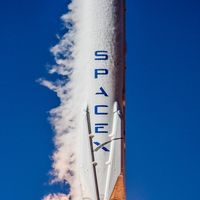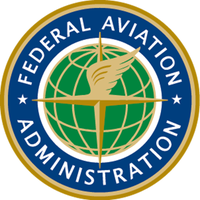SpaceX vs. FAA: A Clash of Titans in the Skies
September 20, 2024, 3:48 am

Location: United States, District of Columbia, Washington
Employees: 5001-10000
Founded date: 2002
Total raised: $7.53B

Location: United States, District of Columbia, Washington
Employees: 10001+
Founded date: 1958
In the high-stakes world of space exploration, a storm is brewing. SpaceX, the brainchild of Elon Musk, is in a fierce battle with the Federal Aviation Administration (FAA). The FAA has accused SpaceX of violating launch regulations during two significant rocket launches in 2023. The proposed fines? A staggering $633,000. SpaceX, however, is not backing down. They are pushing back, claiming the FAA's conclusions are unfounded and politically charged.
The FAA's accusations stem from launches in June and July of 2023 at Cape Canaveral, Florida. The agency alleges that SpaceX failed to secure necessary approvals for changes made to their launch procedures. This includes the addition of a new launch control room and the removal of a critical pre-launch communication protocol. SpaceX argues that these changes were not only communicated in advance but also did not require regulatory approval. They assert that the FAA's slow response to their modifications reflects a broader issue within the agency—one that struggles to keep pace with the rapidly evolving commercial space industry.
SpaceX's legal vice president, David Harris, has been vocal about the company's stance. He has reached out to congressional leaders, emphasizing SpaceX's commitment to safety and innovation. The company claims the FAA is misallocating its resources, focusing on areas that do not directly impact public safety. This is a bold assertion, especially coming from a company that has transformed the landscape of space travel.
The FAA's scrutiny of SpaceX is not new. In February 2023, the agency proposed a $175,000 fine for SpaceX's failure to submit safety data prior to a Starlink satellite launch. SpaceX paid that fine, but the recent accusations have ignited a firestorm. Musk has labeled the fines as politically motivated, hinting at a larger narrative of government inefficiency and overreach. This is a familiar theme for Musk, who has often clashed with regulatory bodies.
The tension between SpaceX and the FAA raises questions about the future of commercial spaceflight. As private companies like SpaceX push the boundaries of technology and exploration, regulatory frameworks must adapt. The FAA, tasked with ensuring safety, is caught in a balancing act. It must protect the public while fostering innovation. This is no easy feat.
The implications of this conflict extend beyond SpaceX. The commercial space industry is burgeoning, with numerous players vying for a piece of the cosmic pie. If the FAA cannot streamline its processes, it risks stifling innovation. Companies may hesitate to invest in ambitious projects if they fear regulatory hurdles will slow them down.
Musk's relationship with the government is complex. He has been a vocal critic of bureaucratic inefficiencies. His endorsement of Donald Trump, who has promised to establish a government efficiency commission led by Musk, adds another layer to this narrative. The intertwining of politics and space exploration is becoming increasingly evident. As Musk positions himself as a key player in this arena, the stakes are higher than ever.
The FAA's investigation into SpaceX's April 2023 test launch of the Starship rocket also highlights the agency's concerns. Following that launch, the FAA mandated a series of corrective measures. This scrutiny is indicative of the FAA's cautious approach to commercial spaceflight. However, SpaceX argues that the agency's actions are reactive rather than proactive. They believe the FAA is struggling to keep up with the pace of innovation.
As the clock ticks, SpaceX has 30 days to formally respond to the FAA's proposed fines. The outcome of this confrontation could set a precedent for future interactions between regulatory bodies and commercial space companies. Will the FAA adapt to the rapid changes in the industry, or will it cling to outdated practices? The answer remains uncertain.
In the grand scheme of things, this clash is more than just a legal battle. It symbolizes the broader struggle between innovation and regulation. SpaceX is a beacon of progress, pushing humanity toward the stars. The FAA, on the other hand, represents the necessary checks and balances that ensure safety. Finding common ground is essential.
The future of space exploration hangs in the balance. As SpaceX continues to challenge the status quo, the FAA must evolve. The commercial space industry is at a crossroads. Will it soar to new heights, or will it be grounded by bureaucratic red tape? Only time will tell.
In conclusion, the conflict between SpaceX and the FAA is a microcosm of the challenges facing the commercial space industry. It is a battle of wills, innovation versus regulation. As both sides prepare for the next round, the world watches closely. The outcome could shape the future of space travel for generations to come. The sky is not the limit; it is just the beginning.
The FAA's accusations stem from launches in June and July of 2023 at Cape Canaveral, Florida. The agency alleges that SpaceX failed to secure necessary approvals for changes made to their launch procedures. This includes the addition of a new launch control room and the removal of a critical pre-launch communication protocol. SpaceX argues that these changes were not only communicated in advance but also did not require regulatory approval. They assert that the FAA's slow response to their modifications reflects a broader issue within the agency—one that struggles to keep pace with the rapidly evolving commercial space industry.
SpaceX's legal vice president, David Harris, has been vocal about the company's stance. He has reached out to congressional leaders, emphasizing SpaceX's commitment to safety and innovation. The company claims the FAA is misallocating its resources, focusing on areas that do not directly impact public safety. This is a bold assertion, especially coming from a company that has transformed the landscape of space travel.
The FAA's scrutiny of SpaceX is not new. In February 2023, the agency proposed a $175,000 fine for SpaceX's failure to submit safety data prior to a Starlink satellite launch. SpaceX paid that fine, but the recent accusations have ignited a firestorm. Musk has labeled the fines as politically motivated, hinting at a larger narrative of government inefficiency and overreach. This is a familiar theme for Musk, who has often clashed with regulatory bodies.
The tension between SpaceX and the FAA raises questions about the future of commercial spaceflight. As private companies like SpaceX push the boundaries of technology and exploration, regulatory frameworks must adapt. The FAA, tasked with ensuring safety, is caught in a balancing act. It must protect the public while fostering innovation. This is no easy feat.
The implications of this conflict extend beyond SpaceX. The commercial space industry is burgeoning, with numerous players vying for a piece of the cosmic pie. If the FAA cannot streamline its processes, it risks stifling innovation. Companies may hesitate to invest in ambitious projects if they fear regulatory hurdles will slow them down.
Musk's relationship with the government is complex. He has been a vocal critic of bureaucratic inefficiencies. His endorsement of Donald Trump, who has promised to establish a government efficiency commission led by Musk, adds another layer to this narrative. The intertwining of politics and space exploration is becoming increasingly evident. As Musk positions himself as a key player in this arena, the stakes are higher than ever.
The FAA's investigation into SpaceX's April 2023 test launch of the Starship rocket also highlights the agency's concerns. Following that launch, the FAA mandated a series of corrective measures. This scrutiny is indicative of the FAA's cautious approach to commercial spaceflight. However, SpaceX argues that the agency's actions are reactive rather than proactive. They believe the FAA is struggling to keep up with the pace of innovation.
As the clock ticks, SpaceX has 30 days to formally respond to the FAA's proposed fines. The outcome of this confrontation could set a precedent for future interactions between regulatory bodies and commercial space companies. Will the FAA adapt to the rapid changes in the industry, or will it cling to outdated practices? The answer remains uncertain.
In the grand scheme of things, this clash is more than just a legal battle. It symbolizes the broader struggle between innovation and regulation. SpaceX is a beacon of progress, pushing humanity toward the stars. The FAA, on the other hand, represents the necessary checks and balances that ensure safety. Finding common ground is essential.
The future of space exploration hangs in the balance. As SpaceX continues to challenge the status quo, the FAA must evolve. The commercial space industry is at a crossroads. Will it soar to new heights, or will it be grounded by bureaucratic red tape? Only time will tell.
In conclusion, the conflict between SpaceX and the FAA is a microcosm of the challenges facing the commercial space industry. It is a battle of wills, innovation versus regulation. As both sides prepare for the next round, the world watches closely. The outcome could shape the future of space travel for generations to come. The sky is not the limit; it is just the beginning.